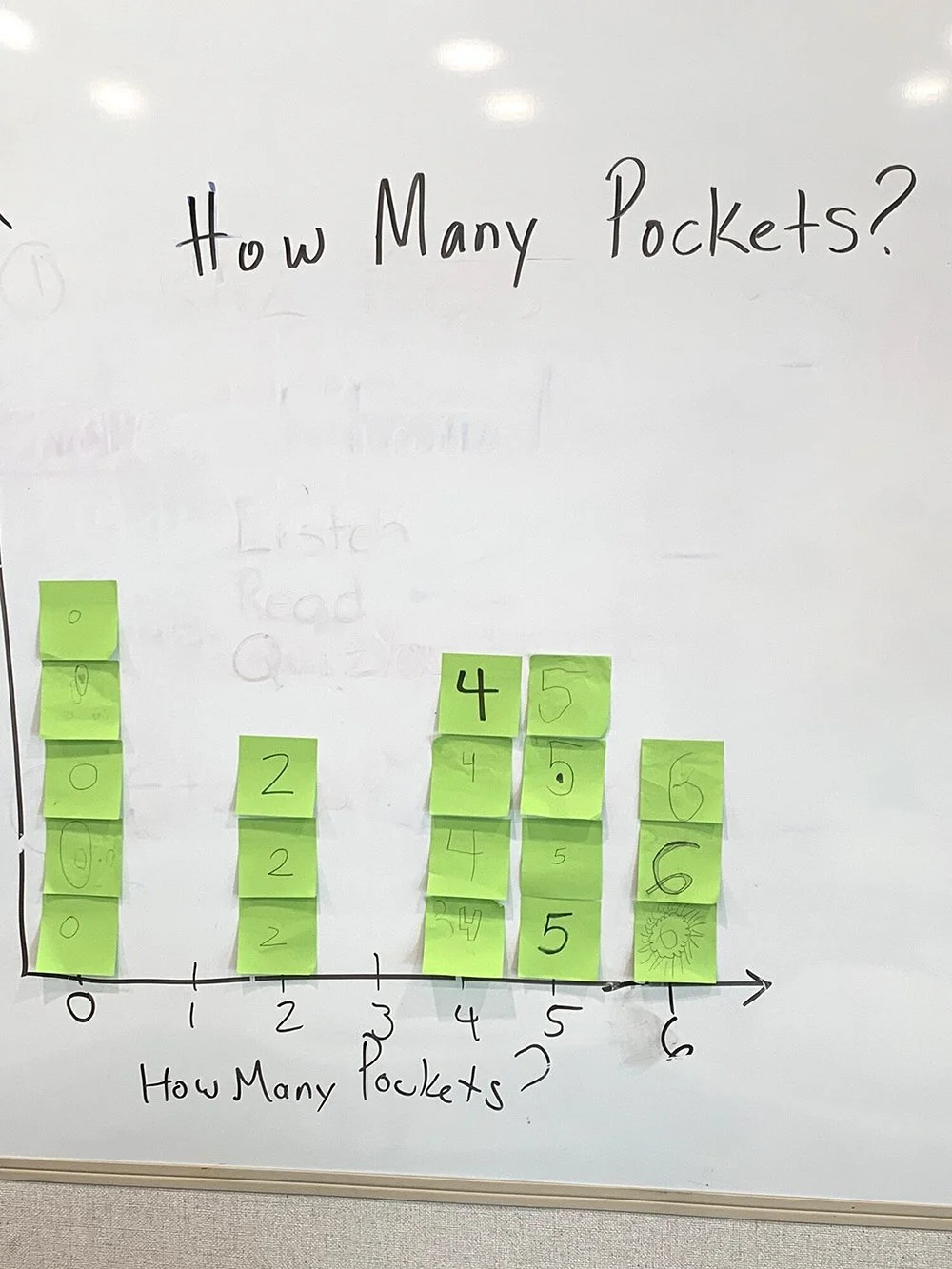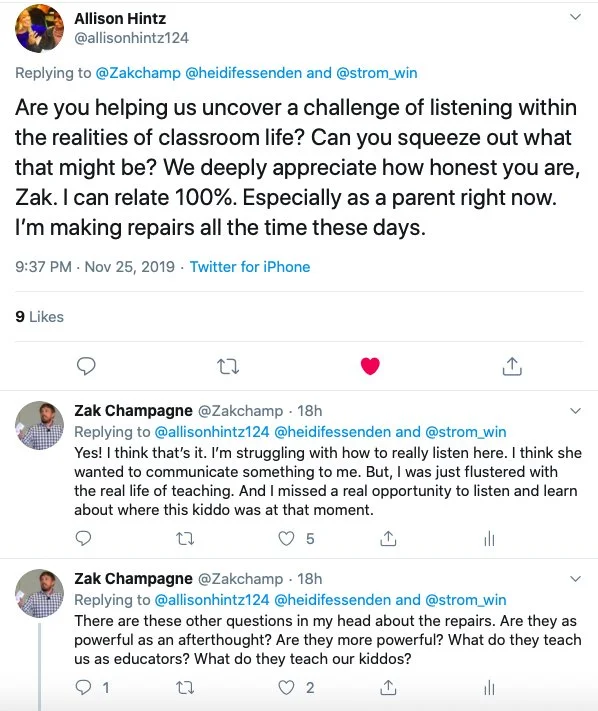I don’t want to do this today…
I recently wrote about my obsession (maybe a bit strong of a term) with the long game. I wrote about how it’s what keeps me going each day. How it allows me to see the forest through the trees.
But recently, I’ve been plagued again by the micro-decisions we make each and every day in the classroom. How each of those has the potential to make or break a kid. So, while I still believe that this gig is mostly about the long game, a super small moment has been weighing heavy on my mind.
I had planned this amazing task—inspired by the Investigations in Number, Data, and Space curriculum and the Choral Counting & Counting Collections by Megan L. Franke, Elham Kazemi, and Angela Chan Turrou. We were going to count the number of pockets that we each were wearing on a given day in November in Florida.
Side note—it’s “cold” in Florida in November. Like mid-50’s in the morning some days. Come on.
So, we were going to count our pockets, make a group representation of that data, and then have groups of students determine how many pockets were in our class. Steps one and two were flawless. I felt like the greatest teacher on the planet.
We had an incredible conversation about what makes a pocket and how to count them on ourselves. We made a class representation of the data and the kiddos had some amazing noticings and wonderings about the data.
And the first 10 minutes of our partner work was spot on. I had students who were representing and counting the data with color tiles, linking cubes, and drawings. Then, one of my more timid mathematicians—who doesn’t always engage outwardly—approached me and the following conversation took place.
Student: I don’t want to do this today.
Me: Well, this is what we are doing.
Student: Okay {Begrudgingly goes back to her seat}
A few minutes later…
Student: I don’t want to do this today.
Me: You already told me that, but this is what we are doing. Can you please get to work?
I got home that night and talked with my wife and colleague, Claire Riddell. I replayed this conversation over and over with her, and I was really distraught with how I handled it. I was frustrated that I didn’t show more empathy. I previously wrote about how I have a fundamental belief that “Kids should be able to walk away from a math problem.” And here was this student obviously asking to walk away from the problem, and I didn’t even ask a follow-up question. Claire reminded me about how passionate I am about listening. She reminded me that I didn’t really need to do anything other than just ask, “what’s up?” And then give this student the teacher she deserves. One who will be there to listen.
So, now what. I’m trying to figure out how to move forward. I think I’ve landed with something like this:
“Last week, you didn’t want to do a math problem that we were working on. You bravely communicated that to me, and I didn’t listen very well. I’m sorry, and I’ll try to do better moving forward.”
I’d love to hear what you think. What would you say/do in hindsight? Feel free to leave comments here and/or reach out on Twitter, if that’s your jam.
POSTSCRIPT
I posted a brief version of this story on Twitter earlier this week.
And, during this twitter conversation, so many of you shared similar moments from your journey. And, my dear friend and colleague, Allison Hintz pushed my thinking even more.
She really got me thinking (as she always does) about what what both situations afford us. What benefits are there to handling it emphatically in the moment? What benefits are there to broaching the conversation after the fact? There are big unanswered questions for me. More learning here for sure.



